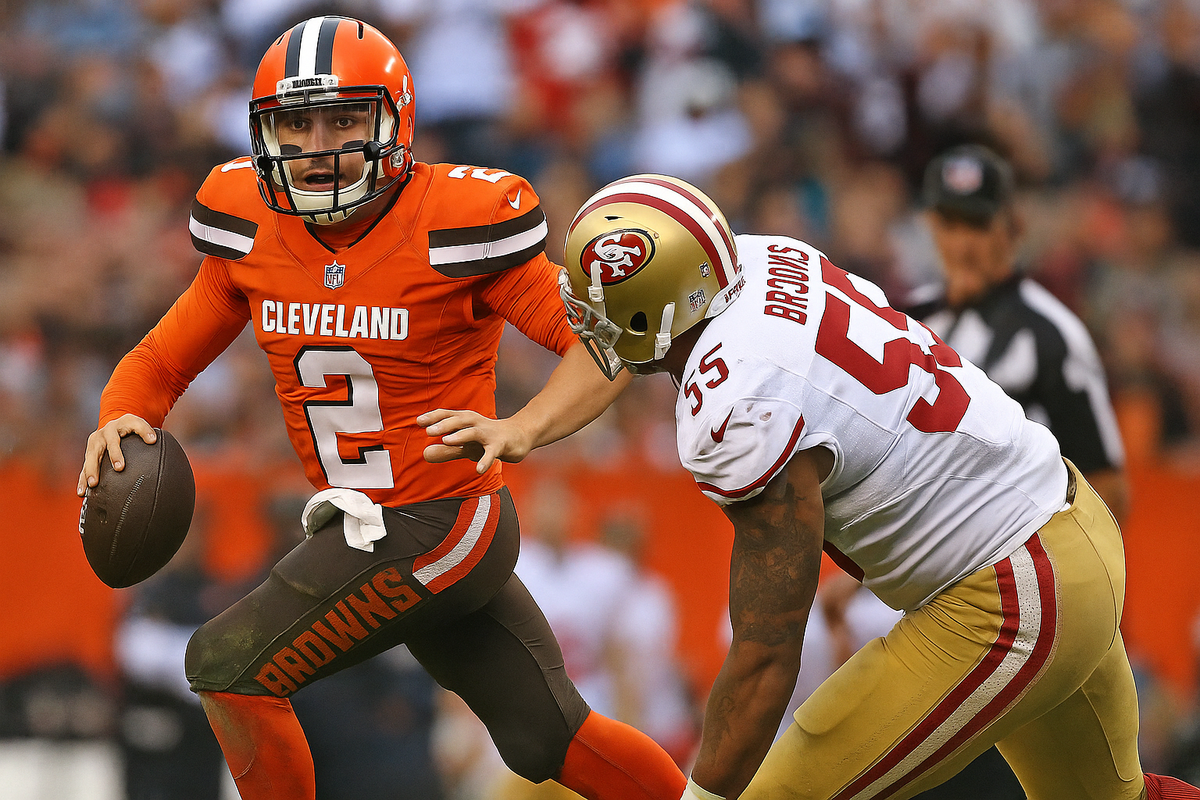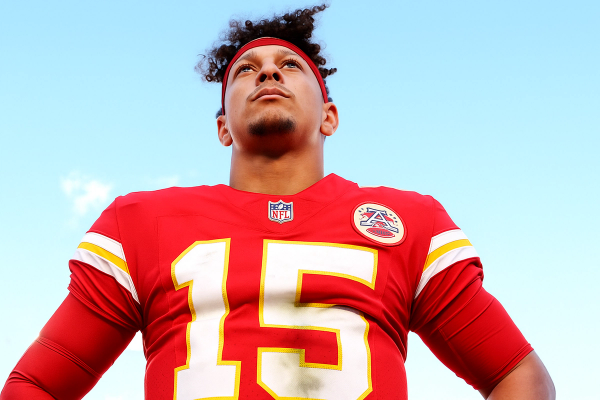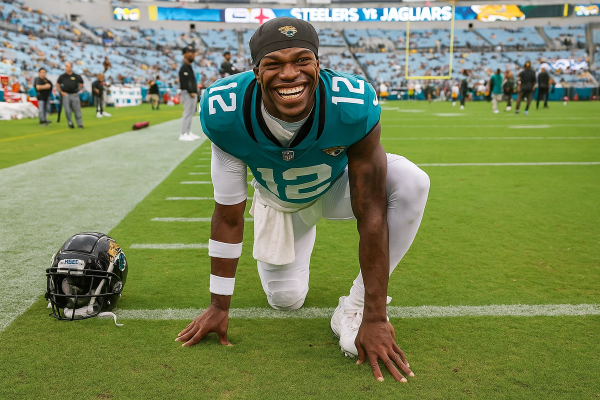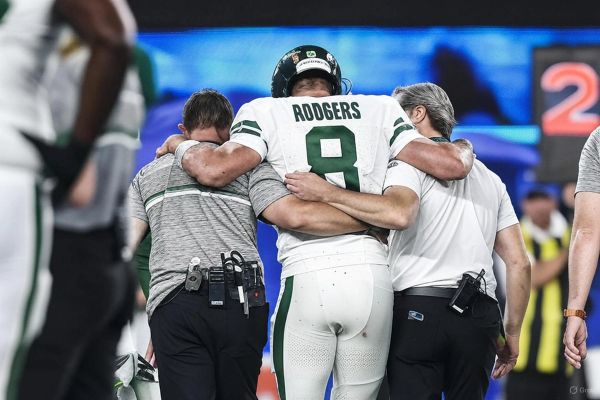The Underdog Delusion: Why Rooting Interest Ruins Your Bankroll


James White
Co-Founder of HotTakes
Everyone loves a good underdog story. David vs. Goliath. Rocky Balboa. Leicester City winning the Premier League. These narratives are burned into our cultural DNA, and the sports betting industry knows exactly how to exploit that emotional weakness.
Here's the uncomfortable truth: your desire to see underdogs win is systematically destroying your betting profits. While you're busy rooting for Cinderella, sharp money is quietly backing the favorite at inflated odds, knowing that your emotional attachment to upset stories creates consistent value on the other side.
The underdog delusion isn't just about picking too many dogs. It's about how rooting interest warps your entire decision-making process, making you see value where none exists and ignore mathematics in favor of fairy tales.
The Psychology Behind Underdog Addiction
Real talk: there's something deeply satisfying about being right when everyone else is wrong. Betting underdogs feeds that psychological need perfectly. You get to feel smarter than the crowd, more insightful than the experts, and morally superior for backing the "little guy."
But that emotional payoff is exactly what makes underdog betting so dangerous. Your brain starts seeking out reasons to justify underdog bets instead of objectively evaluating whether they represent actual value. You become a prosecutor building a case for why the upset will happen rather than a judge weighing all evidence fairly.
This psychological trap is reinforced every time an underdog actually wins. Those occasional victories feel so much sweeter than routine favorite wins that they completely override the mathematical reality of your long-term results. One memorable underdog win can psychologically erase months of underdog losses.
The worst part? The sports media industrial complex is designed to feed this addiction. Every upset story gets maximum coverage, every Cinderella run gets romantic treatment, and every David vs. Goliath narrative gets amplified because it drives engagement. Your emotional responses are being systematically manipulated for content consumption.
Why Underdogs Exist in the First Place
Before you can understand why betting underdogs is usually a losing strategy, you need to understand why point spreads and odds exist at all. Books aren't trying to predict exact game outcomes. They're trying to create betting lines that attract roughly equal action on both sides while building in their profit margin.
When a team is a 10-point underdog, that doesn't mean the bookmaker thinks they'll lose by exactly 10 points. It means the bookmaker thinks this line will generate balanced action from the betting public while ensuring the house maintains its mathematical edge regardless of outcome.
The key insight here is that underdogs are often getting points or plus-money not because they have a realistic chance of winning outright, but because the public needs to be incentivized to bet on them at all. If books made the Cowboys 30-point favorites over some random college team, nobody would bet the college team even with plus-money.
This creates a fundamental problem for underdog bettors: you're often betting on teams that are only getting favorable numbers because they need favorable numbers to generate any betting interest whatsoever. The line isn't reflecting hidden value. It's reflecting the minimum incentive needed to make a hopeless situation bettable.
The Cinderella Complex
March Madness perfectly illustrates how underdog delusion destroys bankrolls. Every year, millions of casual bettors load up on 12-seeds over 5-seeds, 15-seeds over 2-seeds, and other "trendy" upset picks because they want to be part of the Cinderella story.
But here's what the numbers actually show: yes, upsets happen in March Madness, but they don't happen nearly as often as the emotional betting public thinks they should. The 12-5 upset that everyone "knows" is coming hits about 35% of the time. That means it fails 65% of the time, but casual bettors bet it like it's a coin flip.
The Cinderella complex makes bettors focus on the possibility of upsets rather than the probability of upsets. Just because something can happen doesn't mean it will happen often enough to be profitable. A 15-seed can beat a 2-seed, but it happens roughly 7% of the time historically. Yet people bet these matchups like they're getting steal prices.
Even worse, the Cinderella complex makes bettors chase increasingly unlikely outcomes as their underdog bets fail. Start with 12-seeds, lose those bets, then move to 13-seeds for "better value," lose those, then convince yourself that 14-seed is where the "real" value lies. It's a psychological spiral that leads to betting progressively worse numbers on progressively worse teams.
The Mathematics of Underdog Value
Here's where underdog betting gets mathematically brutal. For an underdog bet to be profitable long-term, the team needs to win more often than their odds imply. If a team is +300 (25% implied probability), they need to win more than 25% of the time for you to profit.
Most recreational bettors can't do this math in their heads, so they focus on the payout size instead of the probability requirements. A +400 underdog sounds amazing because of the potential four-to-one return, but that team needs to win at least 20% of the time just for you to break even. How often do you think +400 underdogs actually win?
The psychological problem is that big payouts feel more significant than they actually are mathematically. Winning $400 on a $100 bet creates a massive dopamine hit that makes you forget about the previous four $100 losses on similar bets. Your brain remembers the emotional high of the big win but not the slow bleed of the frequent losses.
Sharp bettors understand that smaller, more frequent wins compound better than occasional large wins punctuated by many losses. While you're chasing the emotional high of huge underdog payouts, they're grinding out consistent profits on properly priced favorites and small underdogs with genuine value.
When Rooting Interest Overrides Analysis
The most insidious aspect of underdog delusion is how it corrupts your analytical process. When you want an underdog to win, you start looking for evidence that supports that outcome while ignoring evidence that contradicts it. This confirmation bias turns every piece of information into justification for your predetermined conclusion.
A key player being questionable becomes "motivation for the team to rally." A recent loss becomes "they're due for a bounce-back." A coaching change becomes "addition by subtraction." Every narrative gets twisted to support the underdog case because your emotional investment demands that justification.
This selective analysis is particularly dangerous because it feels like research. You're putting in time, looking at statistics, reading injury reports, and analyzing matchups. But if you're only looking for information that confirms your underdog bias, you're not actually analyzing. You're just building elaborate rationalizations for emotional decisions.
The solution isn't to never bet underdogs. It's to approach every potential bet with the same analytical framework regardless of whether you want the team to win or lose. If your analysis process changes based on your rooting interest, you're not betting on sports. You're gambling on your emotions.
The Sharp Money Perspective on Dogs
Professional bettors have a completely different relationship with underdogs than recreational players. They don't bet dogs because they want upsets to happen. They bet dogs when the mathematical analysis suggests the line has moved too far in the favorite's direction.
Sharp underdog betting is usually based on specific situational advantages that the market hasn't properly priced. Maybe the favorite is on a short week while the underdog had extra rest. Maybe key injuries haven't been fully reflected in the line movement. Maybe the public overreaction to a recent blowout created temporary value.
The crucial difference is that sharp money treats underdog bets as mathematical opportunities, not emotional investments. They're not rooting for David to beat Goliath. They're calculating whether David is getting enough points to make the bet profitable regardless of the storyline.
Professional players also understand that most underdog value comes from smaller dogs, not bigger ones. The 3-point underdog getting 3.5 points might represent genuine value. The 17-point underdog getting 17 points rarely does. The bigger the spread, the more likely it reflects a legitimate talent gap rather than market inefficiency.
The Social Media Echo Chamber Effect
Social media has made underdog delusion worse by creating echo chambers where upset predictions get amplified and validated. Every Twitter thread about "sleeper picks" and "upset specials" feeds the psychological need to find hidden value in underdogs.
The problem is that social media rewards bold predictions over accurate ones. Nobody gets retweeted for picking chalk. Everyone remembers the guy who called the massive upset, but nobody tracks the guy who went 2-8 on his upset picks while calling that one big winner.
This creates a feedback loop where underdog betting gets social validation even when it's mathematically destructive. You see other people making similar bets, getting similar justifications, and celebrating similar rare wins. The community reinforcement makes the strategy feel smart even when the results prove otherwise.
Breaking free from this echo chamber requires focusing on long-term results rather than individual outcomes. Track your underdog betting performance over full seasons, not just the memorable wins. Calculate your actual return on investment, not just the times you felt smart for calling an upset.
Building Discipline Around Dog Betting
The goal isn't to never bet underdogs. Some underdogs represent genuine value, especially in certain situational spots or when public overreaction creates line value. The goal is to bet underdogs for the right reasons rather than emotional ones.
Start by establishing clear criteria for when underdog bets make mathematical sense. Maybe you only bet dogs getting fewer than 7 points. Maybe you only bet dogs in divisional games where familiarity breeds parity. Maybe you only bet dogs when specific statistical metrics suggest the line is inflated.
Whatever criteria you choose, stick to them regardless of how much you want a particular upset to happen. If your system says pass on a bet, pass on it even if every fiber of your being wants to back the underdog. Your rooting interest should never override your systematic approach.
Most importantly, track your underdog betting separately from your favorite betting. This allows you to see whether your dog bets are actually profitable or just emotionally satisfying. Many bettors discover that their underdog betting is dragging down their overall results even when they're profitable on favorites.
Just like how emotions in live betting can cloud judgment and create poor decisions, emotional attachment to underdog stories can systematically corrupt your betting analysis over time.
The Entertainment vs. Investment Balance
Here's the thing that most betting advice gets wrong: there's nothing inherently evil about occasionally betting underdogs for entertainment value. If watching games is more fun when you have action on potential upsets, that's a legitimate reason to make some underdog bets.
The problem comes when entertainment bets get confused with investment bets. If you want to bet some underdogs because it makes games more exciting, be honest about that motivation and size those bets appropriately. Don't convince yourself they're smart investments when they're really entertainment expenses.
Separate your betting into two categories: profit-focused bets that follow strict analytical criteria, and entertainment bets that prioritize fun over expected value. This mental separation allows you to enjoy underdog betting without letting it destroy your overall profitability.
The entertainment budget should be money you can afford to lose completely, sized much smaller than your investment bets, and tracked separately so you can see the real cost of your entertainment preferences. Most bettors discover that occasional small entertainment bets are much more sustainable than trying to convince themselves every underdog bet is a smart play.
Recognizing Your Underdog Triggers
Different bettors have different emotional triggers that lead to poor underdog betting. Some people can't resist betting against teams they hate. Others get seduced by massive payouts on long shots. Some chase the social validation of calling upsets.
Identifying your specific triggers helps you build defenses against them. If you always bet against the Cowboys because you hate the Cowboys, acknowledge that bias and either avoid Cowboys games entirely or force yourself to consider their opponents' actual value rather than your emotional satisfaction.
If you're drawn to huge payouts on massive underdogs, remind yourself that lottery tickets also offer huge payouts with tiny probabilities. The size of the potential win doesn't make a bet smart if the likelihood of that win is minuscule.
If you love the social media attention from upset predictions, find other ways to get that validation that don't involve risking your bankroll on low-probability outcomes. Prediction contests, fantasy sports, or just being more active in sports discussions can satisfy that need without the financial cost.
The Long-Term Cost of Underdog Addiction
Most bettors drastically underestimate the cumulative cost of their underdog betting bias. A few extra underdog bets per week might not seem significant, but the mathematics compound brutally over time.
Let's say you bet one extra underdog per week at +200 odds (33% implied probability) for teams that actually win 25% of the time. That's a negative expected value of about 8% per bet. Over a full season, those 17 weeks of negative EV bets could easily cost you 15-20% of your total betting bankroll.
The psychological problem is that this cost is spread out over time and mixed in with your other betting results. You don't see a line item that says "Cost of Underdog Delusion: $1,200." You just see your overall results being worse than expected and can't quite figure out why.
Tracking your underdog betting separately makes this cost visible and quantifiable. Most bettors are shocked when they discover how much their emotional attachment to upset stories is actually costing them over the long term.
Bottom Line: Love the Story, Respect the Math
Underdog stories are compelling because they represent hope, perseverance, and the possibility that talent doesn't always win. These are beautiful human narratives that make sports meaningful beyond just athletic competition.
But beautiful narratives and profitable betting decisions are two completely different things. You can appreciate the story of David vs. Goliath without betting your bankroll on every David you encounter.
The most successful bettors separate their emotional relationship with sports from their financial relationship with sports betting. They can root for upsets as fans while betting on mathematical probabilities as investors.
When you find yourself drawn to an underdog bet, ask yourself one simple question: Am I betting this because my analysis suggests it's profitable, or because I want this outcome to happen? If the answer is the latter, either pass on the bet entirely or size it as pure entertainment rather than investment.
Your heart will always want Cinderella stories to come true. But your bankroll depends on recognizing when those stories are just that: stories, not investment opportunities. Master this distinction, and you'll stop funding other people's profits with your own emotional attachments to fairy tale endings.
Continue the Journey
with More Expert
Insightsmore Articles

Analysis Paralysis: When Too Much Research Kills Your Edge
Mental Edge
The Live Betting Panic Premium: How In-Game Emotions Create Instant Value
Mental Edge
The Rookie Reality Check: When First-Year Hype Meets NFL Speed
Real-Time Reactions
Fade the Panic: Why Public Overreactions Create Your Best Value
Mental Edge